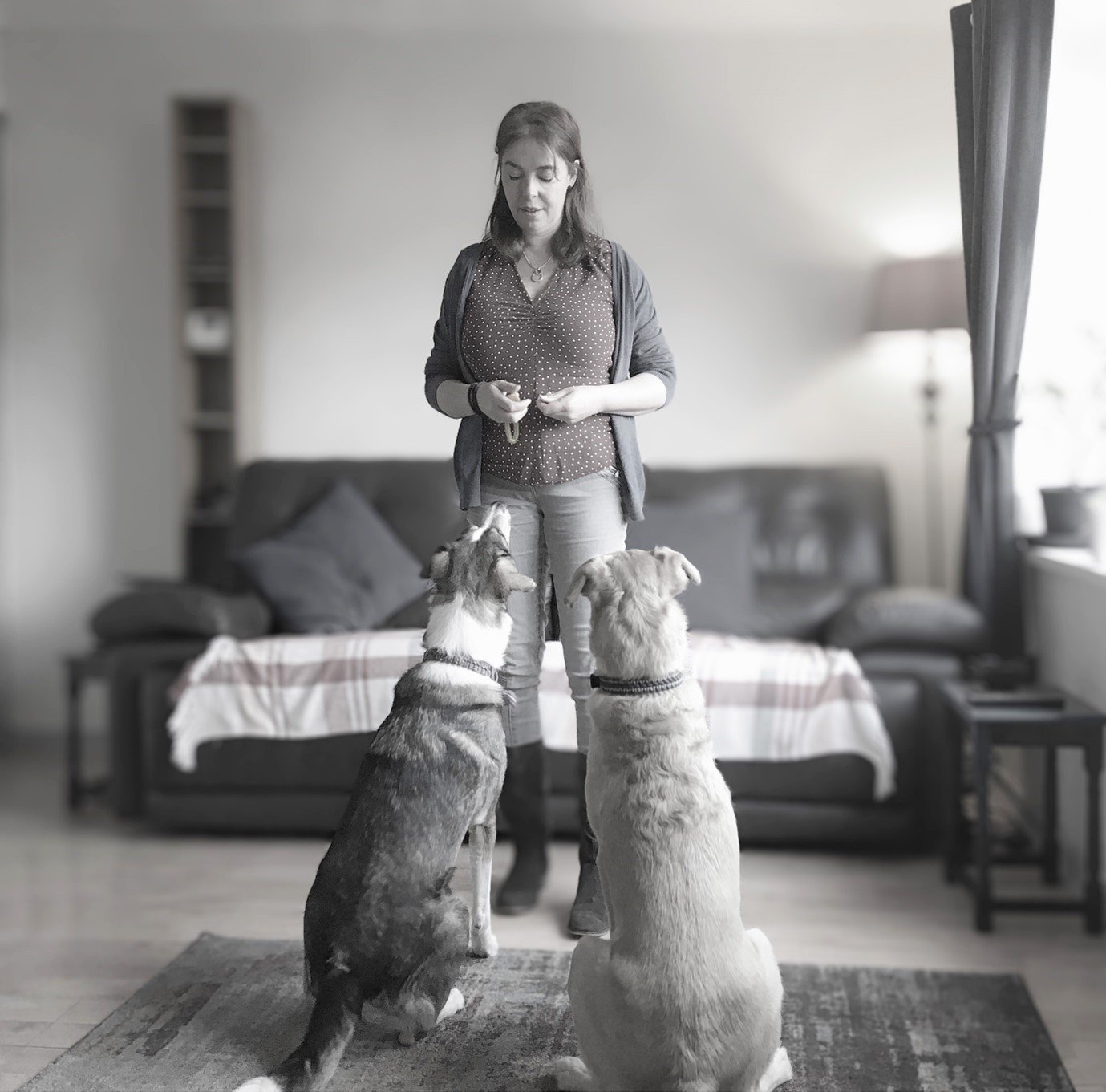Fluffy pup seeks human family for snuggles and long walks
It's no secret that I love dogs, and I have adopted two amazing dogs, Mila and Rupert.
They were the catalyst to my studying to become a dog trainer.
Adopting dogs is wonderful, and I would wholeheartedly encourage you to do so. But it can be challenging, and the reality is so often very different from your dreams of fun adventures together, long walks, cuddles on the sofa, and relaxing evenings in the pub. To achieve the transition from shelter pup to a totally awesome family pet, consider these simple tips:
Get to know your dog – consider their breed, as well as their background. Remember, the dog doesn't know you; they are a completely different species and don't speak your language! Learn about dog body language. Learn about stress signals; they can be very subtle and often miss interpreted or just ignored. Email info@bark-ology.co.uk for a handout on ‘How dog’s communicate’ or if you want to get geeky this Book by Lili Chin is just excellent.
Be pro-active – prevent them from being able to practice unwanted behaviours. Don't want them to steal your shoes? put them away. Counter surfing, keep them out of the kitchen while you cook, make sure you don't leave the roast chicken out on the side. I promise you they will never forget and keep checking!
Consistency – with your training, expectations, and behaviour. Do you want them on the sofa? Yes, or No. Does ‘down’ mean lie down or get down of the sofa/counter and so on.
Boundaries – access to too much stuff or space can cause over-arousal and anxiety. Make sure they have a safe space to call their own, not access to the whole house, then get annoyed when they have shredded the toilet roll, chewed your nice fluffy rug, or stolen the roast chicken from the worktop.
Routine – makes them feel safe. They like predictability, and this can help reduce anxiety.
Patience, time, and space – they have just arrived. Give them time to adjust, decompress. Don't drag them out to a busy park; invite all your family and friends to say hi. Take it slow, build the relationship, build trust, build confidence. Remember, stress can be good (exciting park visits) or bad (shouted at for stealing your shoe), but it all causes stress hormones to rise which can take up to 72 hours to reduce.
Prepare – think ahead at home and on walks. Think about how safe your home is before you get your rescue dog. Can they get out? They are often great at bolting out of open doors, so think baby gates to keep them safe. Do you have an appropriate harness? Does it fit? Are they stressed? Stressed, anxious dogs are much more likely to bolt, so do enrichment games at home, in the garden, build walks slowly in quiet places.
Love doesn't always conquer all, but accepting your dog for what and who they are will conquer most. Don’t expect your library dog to go partying.
‘We fell in love’. Be there, done that (twice in fact!) but again, think before you leap, read, research before you adopt, and set the foundations as soon as you say yes to welcoming these beautiful dogs into your home. Get help if, in doubt, I have a particular interest in rescue dogs and would love to help so get in touch if you are in need of support. And finally, if you do adopt you won’t be sorry, because of course dogs enrich our world.
Karen



